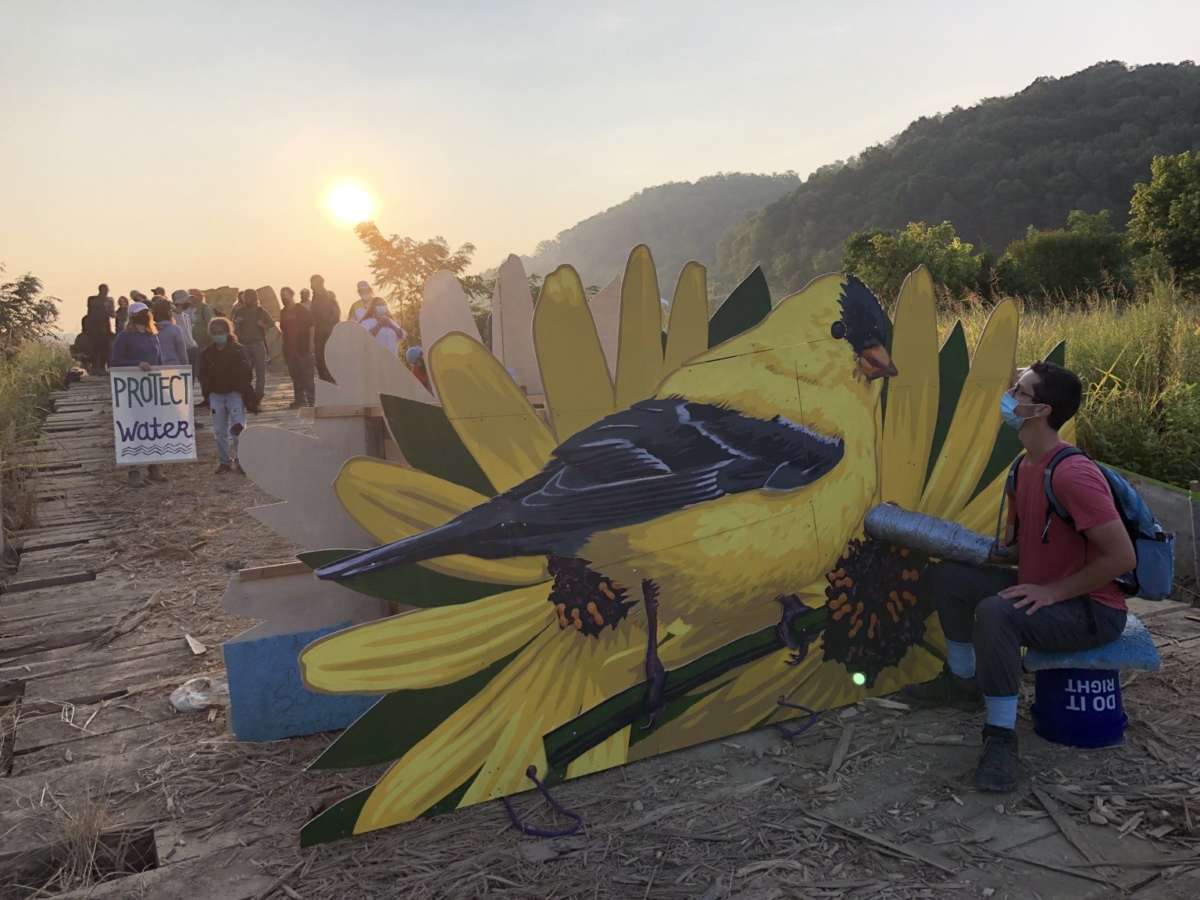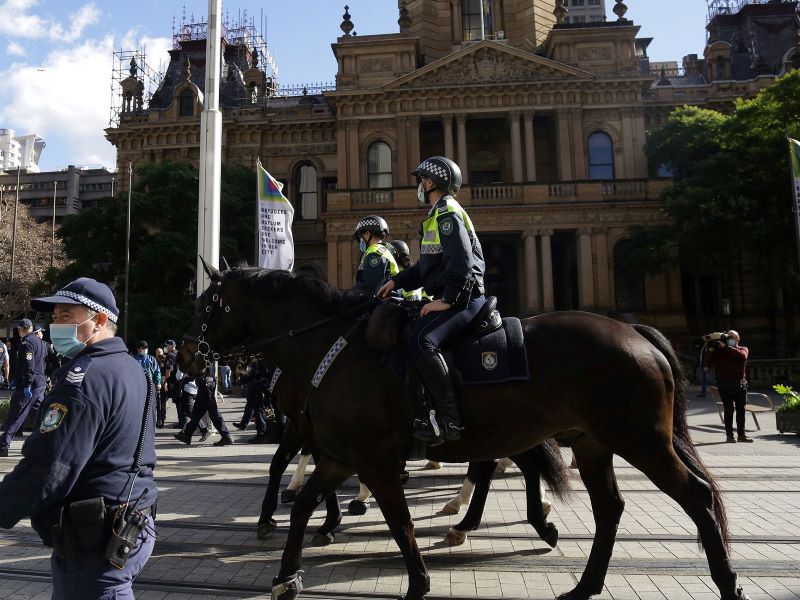 Photo by Jarr1520;
Photo by Jarr1520;
Strategy of reward and punishment
In the newly coined so-called War on Covid, the arsenal is eclectic. There is not only science, in the form of experimental RNA vaccines hastily developed by giants of the pharmaceutical industry, but also semi-authoritarian or full-blown authoritarian government measures imposed and legally validated by declarations of states of emergencies. The panoply of edicts include mandatory face masks indoor and sometime outdoor, depending on the country; enforced or unenforced social distancing recommendations; limitation of public or even private gatherings; and more drastic measures like lock-downs and curfews.
The crescendo of assaults on personal liberties eased up for a few months, but governments are now using, because of the spread of the Delta variant, the threats of reinstating their coercion as an insidious blackmail to force people to get vaccinated. In other words, if one has the temerity to refuse the salvation brought by Big Pharma’s vaccines, life shall be so extremely problematic and isolated as almost to make one a social pariah. In France President Macron is defining a new ideology that could be called semi-authoritarian neoliberalism, while in the Philippines neofascist Duarte is entirely blunt in his approach. Regardless, both politicians have the same goal: to get their entire population vaccinated. They use a strategy of psychological warfare based on reward and punishment, a bit similar to that used on lab mice.
 Photo by Robert Muller
Photo by Robert Muller
In the case of Macron, the reward for the good and fully vaccinated French citizens is that they will carry, as a badge of honor, a Pass Sanitaire. The misfits, refuseniks, pesky bad citizens who still refuse to see the light and comply, will receive punishments. These bad French apples will be deprived from travel except in their own vehicles, and from cultural events like concerts, movies and museum exhibits.
Duarte’s fascist approach, if more brutal, is in a sense a bit more honest. It is still about manipulating his population with the rewards versus punishments principle, but there are many sticks and basically no carrots. Case in point: Duarte is seriously considering locking up in their homes those Filipinos who refuse to be vaccinated. One can only wonder what will happen to the vast homeless population in the Philippines.
 Photo by Grey Area
Photo by Grey Area
Vaccines, the universal silver bullet
Covid management styles and policies have been diverse in tone and strategies, but it seems that governments worldwide are all watching, then mimicking, at times, each other’s minor achievements to avoid major failures. Only one question is on their minds, which seems to be the universal governmental panacea, independently of ideology: how do we get the entire population vaccinated?
In the more sophisticated media manipulation of Western democracies, the secondary questions are as follows. How do we convince the citizenry that the coercive measures put in place nearly 18 months ago, in a quasi entirely undemocratic fashion by decrees etc., were gently forced on people for their own good rather than in an attempt to avoid a global economic collapse? And further, how do we persuade them that these measures will be entirely lifted one day to go back to an almost mythological happy pre-Covid world?
 Jonathan
Jonathan
In other words, how can leaders, with varying degrees of incompetence and undisclosed ties to giant global corporate interests, make people believe that they are acting for the common good rather than to avoid a global stock market crash? Altruism and the collective social good rarely guide the paths of politicians anywhere, and citizens in large numbers have finally caught on to this reality.
People have become more doubtful about what they are told, either directly by their elected officials, or through mainstream media outlets via so-called experts charged with propagating — yes, like propaganda — the government narrative with powerful bullhorns, and sort of carpet-bombing people’s brains with a relentless coverage of the immense danger of Covid, especially the brand new Delta variant, and the great virtue of vaccines as being almost 92 percent accurate silver bullets against the pandemic.
Unfortunately, a one-note intrusive narrative eventually has an undesired effect on a fragment of the population. This is precisely what is going on in France since Macron made the choice, which could be fatal to his political future, to jam through parliament, in the middle of the summer holidays, a law infamously called Pass Sanitaire, to blackmail French people into mandatory vaccination. Many opponents perceive it as a pass to submission, and they have decided to make their voices heard, loud and clear, in the streets. Will this movement of dissent be long lived, contagious to other countries, or ultimately twisted and hijacked for a political purpose? This is so far a question in limbo. The large scale protests, however, were unexpected.
 Illustration by Mike Finn
Illustration by Mike Finn
A smoke screen to mask climate collapse
A year ago the Covid-19 pandemic accounted for about 75 percent of the media coverage across the board worldwide. This alone, if a virus could have been granted the Person of the Year award from Time Magazine, would have assured it the coveted price. Joe Biden and Kamala Harris won person of the year in 2020, but if it had been Creature of the Year, SARS-CoV-2 would have won. As matter of fact, one can easily argue that without the Covid crisis, Donald Trump would have likely been reelected. In political, sociological, and economic affairs, the microorganism has been a game changer.
So far, Covid has not been a seed of much needed social change but instead has been used as a nasty new tool for disaster capitalism to thrive by changing some fundamental economic parameters, as well as serve as a powerful device to concentrate wealth. What could be better for capitalism than to convince taxpayers that their money needs to be injected by the trillions into corporate conglomerates? Across the world, in all the COVID-19 stimulus funding schemes, the lion share went to corporations while private citizens got the crumbs. Wall Street should have crashed but didn’t, because vast amounts of public funds were pumped into the global financial markets. Airlines that were saved from bankruptcy by a Covid bail out should have been nationalized; instead Air France, for example, remained a private company with an overpaid CEO while France’s government became a bigger share holder.
 Photo by Jeanne Menjoulet
Photo by Jeanne Menjoulet
The bait and switch worked on a global scale. It worked with the financial aspect, just like it worked in the semantic of fear. For the media, it’s all about key words. Some might have noticed that at first it was COVID-19, then it became simply Covid, but now, probably because the word’s traction is wearing off, governments or corporate-controlled outlets have switched to Delta variant. It is today’s winner in the fear factor department, and it is repeated ad nauseam. This element of constant fear has established a nice level of docility in a majority of the global population, as well as a numbing anxiety focused on the narrow topic of the pandemic, and the easy vaccine fix proposed by governments.
The cloud of anxiety has obstructed from many the clarity that WE, as a species, face a threat much greater than a virus. How gullible many of us might be to believe that a pandemic, which so far has killed a quarter of the number of victims of the Spanish flu 100 years ago, is more of an existential threat than the unfolding climate collapse? It is pathetic and ironic for governments and their media servants to use a pandemic as a smoke screen for a much bigger problem, especially when a substantial potion of Earth is currently being consumed by fires.
 Photo by Glenn Lewis
Photo by Glenn Lewis
Last time I checked, 800 wild fires were burning in Italy, Turkey was scorched, the US northwest was still burning, Greece was baking with a 45 degree Celsius temperature, Siberia had been burning for months, and there were killer floods in Germany and China. Meanwhile, the so-called climate experts on mainstream media hardly connected these climate crisis events. They barely connected the dots between extreme weather events and catastrophic climate change by softly saying “isolated extreme weather events could be a manifestation of global climate change.” It shouldn’t be “could be” but are; it shouldn’t be “climate change” but climate crisis. The global fear of Covid is highly lucrative. By contrast a fear of climate collapse — or actually a recognition of its imminence — would lead people to reject the global capitalist system that is driving our species into the abyss. It would lead human societies away from consumption and toward zero-growth economies and population models that would deal capitalism a fatal blow.
 Photo by Ian Sanderson
Photo by Ian Sanderson
We have more or less collectively experienced, since March 2020, a life of fear and a sort of lingering collective anxiety. Fear is usually correlated with a reduction of critical thinking and greatly diminished opposition against the abuse of authority.
The protests in France show that fear can lose ground. Citizens do not have to surrender their fundamental rights of freedom and liberty to the whim of governmental authority based on semi-valid cognitive notions, or purely arbitrary ones, at times absurd, which appear to serve an agenda foreign to the common good. Popular resistance, whatever forms it may take in France and elsewhere, is always a viable option. At critical times in history it even becomes a civic duty.

The post
Covid Fear Management Policies: Distractions from and Tests for Looming Climate Collapse first appeared on
Dissident Voice.
This post was originally published on Dissident Voice.
















